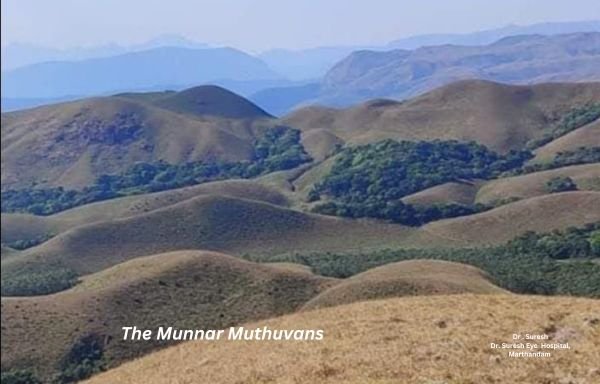The Muthuvans are an indigenous tribal community of Kerala, primarily residing in the High Ranges of Idukki district. Known for their deep connection to the land and forest, the Muthuvans have preserved their unique cultural heritage, including traditional farming methods like shifting cultivation, and religious practices centered around Lord Murugan. Despite modern challenges, they continue to maintain a simple, self-sustained lifestyle, while adapting to changes through government support in areas like education, healthcare, and economic development. The Muthuvans' resilience and commitment to preserving their culture amid progress make them a symbol of endurance and cultural preservation.
The Munnar Muthuvans - A Resilient Tribe Amidst Change
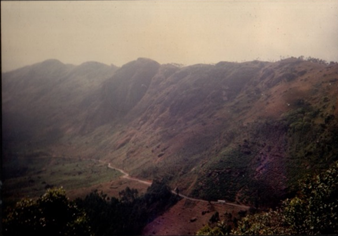
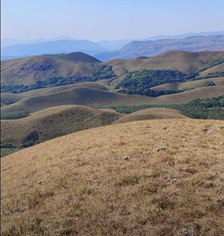
The Muthuvans, one of the earliest inhabitants of the High Ranges in Kerala, represent a community deeply rooted in both history and culture. Their origin remains shrouded in mystery, with one popular legend tracing their roots to the Pandyan wars around 900 A.D. The tribe is believed to have fled to the mountainous regions, escaping the conflict, and sought refuge in the wilderness. Carrying their families and belongings on their backs, they eventually settled in the High Ranges, which led to their name "Muthuvans" or "Back People." This name signifies their retreat into the forests, where they could seek security away from external threats.
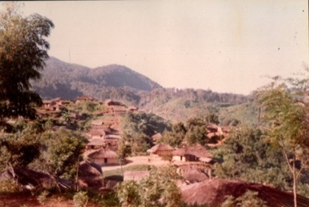
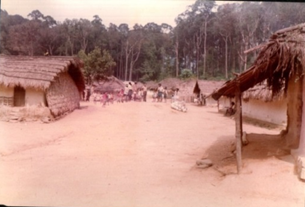
Traditional Lifestyle and Agriculture
Historically, the Muthuvans have lived in small, isolated settlements known as kudis, scattered across the High Ranges, particularly near estates like Pullivasal, Panniar, Kundaly, and Surianallee. Their primary means of survival was through shifting cultivation, an ancient agricultural method where land was cleared, farmed until the soil became exhausted, and then abandoned for new land. However, this practice was eventually curtailed by the government, which encouraged the Muthuvans to settle permanently and preserve forest lands for their use.
In addition to farming crops like ragi, rice, cardamom, and lemongrass, the Muthuvans relied heavily on the forest for resources, collecting honey, bamboo, and eucalyptus oil, and hunting game. Their skills as hunters were unparalleled, and during the early days of the plantation era, they became invaluable guides for the planters, especially those interested in hunting (shikar). However, with the advent of the Wildlife Protection Act, the Muthuvans found new roles, working as wildlife watchers for the High Range Wildlife Preservation Association to prevent poaching and maintain the boundaries of the estates.
Health, Welfare, and Support
The Muthuvans are known for their robust health, rarely falling ill due to their self-sufficiency and the use of native herbs for medicinal purposes. In recent years, Tata Tea’s Medical Department has taken an active interest in their well-being, sending doctors to their settlements and training one person from each kudi in first aid, equipping them with the necessary medicines. The government also extended support to the Muthuvans by providing loans for purchasing cows and goats, as well as creating societies to help them sell their produce collectively, ensuring fair prices.
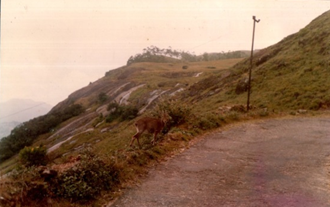
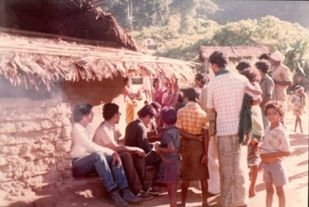
Cultural and Religious Practices
Culturally, the Muthuvans are very much traditionalists. They are deeply devoted to Hinduism, with Lord Murugan being their primary deity. Their diet is predominantly non-vegetarian, though they avoid eating beef and Gaur. While they have embraced certain aspects of modern life, they remain largely separate from other communities, maintaining their cultural identity. This isolation is also evident in their marriage practices, where endogamy is followed—individuals marry within their own community to preserve their customs and traditions.
The Muthuvans celebrate Saami Ootu, a major festival, where all clans come together for a grand celebration. Women wear traditional attire, adorned with ornaments, and men paint their faces, dancing and playing traditional instruments. This festival, like many other aspects of their culture, underscores the tribe’s deep connection to their heritage and the land they inhabit.
Government Recognition and Progress
The Kerala Government, with the assistance of private organizations like Tata Tea, has recognized the importance of improving the living standards of the Muthuvans while respecting their cultural identity. Over time, the Muthuvans have benefited from governmental initiatives such as loans for livestock, the formation of welfare societies, and access to education through free tribal hostels. These efforts have helped improve their quality of life, providing them with resources to thrive in a rapidly changing world.
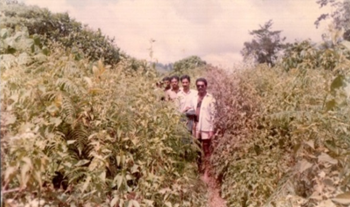
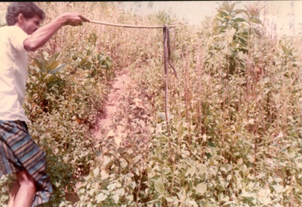
Challenges in the Modern Era
Despite these advancements, the Muthuvans have managed to retain their distinct identity, preserving their traditional way of life while adapting to modernity. They live largely isolated from other communities, ensuring that their culture remains intact even as they gain access to education and healthcare. While the modern world continues to encroach upon their territory, the Muthuvans remain a symbol of resilience, preserving their rich heritage and deep connection to the land.
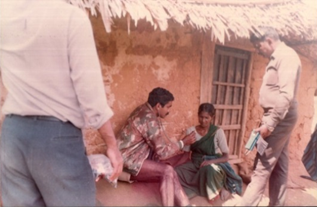
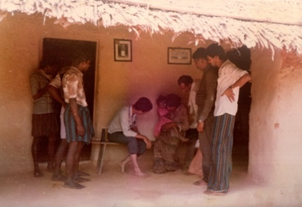
The pictures show our long trek from pettimudi in Rajamalley to Muthuvan Kudi situated 20 km inside the forest in Eraviculam area.
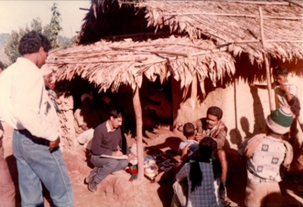
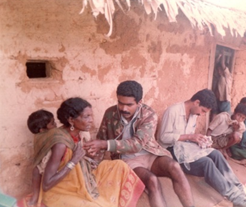
The Muthuvan tribe’s story is one of perseverance, adaptation, and the delicate balance between progress and tradition. As they continue to navigate the complexities of modern life, the hope is that they will retain their unique cultural identity and rich traditions for generations to come. With support from both governmental and private entities, the Muthuvans have been able to maintain their heritage while embracing the opportunities that come with change.
Conclusion
The Muthuvans, a resilient tribal community of Kerala, have preserved their unique culture and way of life despite modernization. Originating from the High Ranges, they practiced shifting cultivation and relied on the forest for sustenance. Over time, government and private support has improved their living conditions, providing access to education, healthcare, and economic opportunities. However, they have remained largely isolated, maintaining their traditional values, customs, and religious practices. The Muthuvans' ability to balance progress with cultural preservation is a testament to their resilience, ensuring their rich heritage continues to thrive in the face of change.
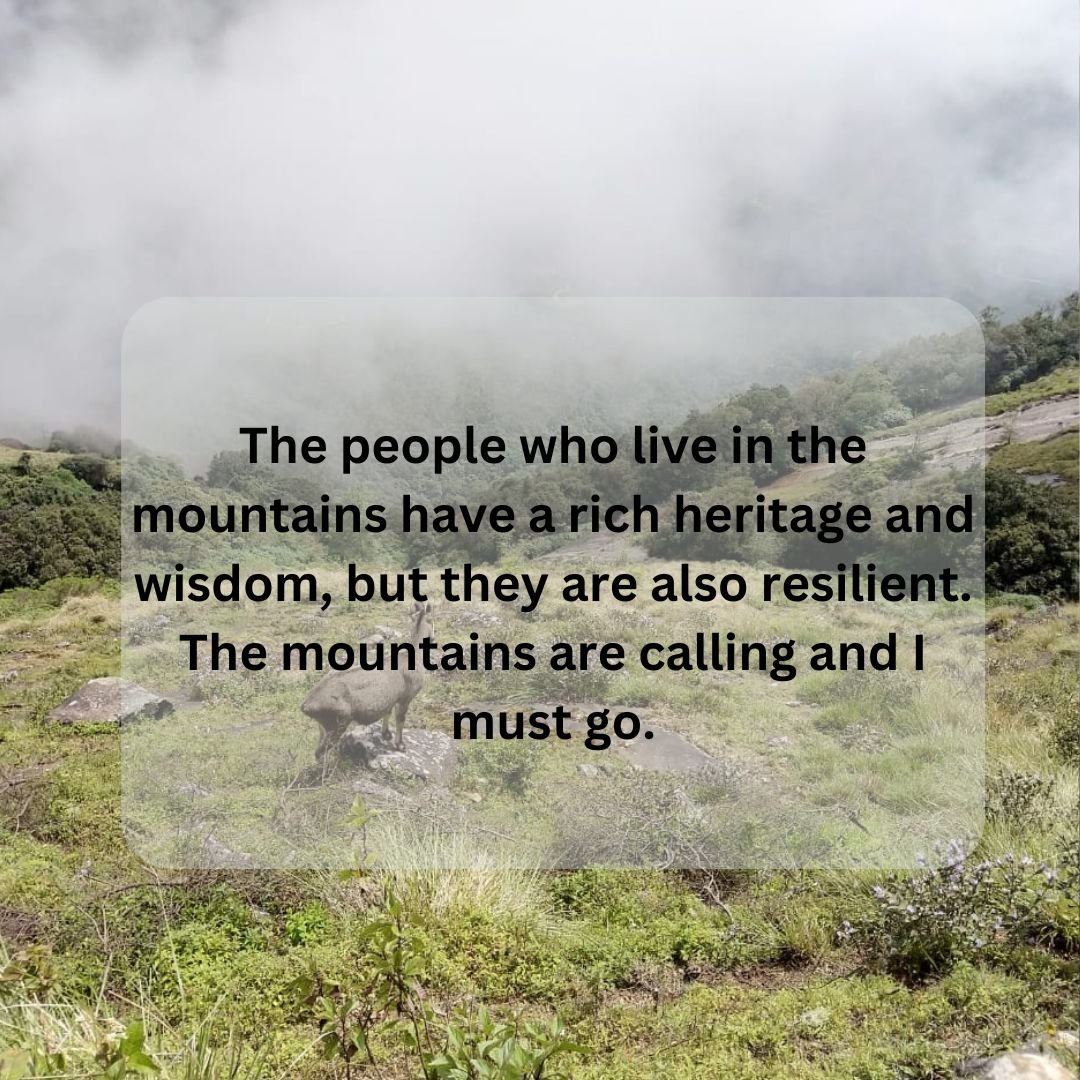
Click here for : Tamil eye related Blogs: https://tamilsuresh.com/
Click here for : English eye related Blogs : https://www.suresheyehospital.in/


